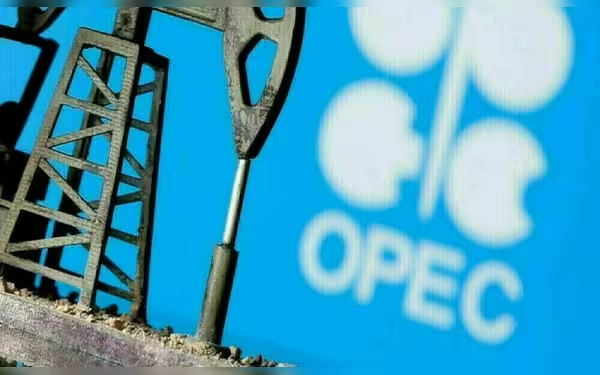Saturday, November 16, 2024 07:46 PM
OPEC+ Delays December Oil Output Increase Amid Weak Demand
- OPEC+ postpones December output hike by one month.
- Weak demand from China influences production decisions.
- OPEC+ to hold crucial meeting on December 1.
 Image Credits: brecorder
Image Credits: brecorderOPEC+ delays December oil output increase due to weak demand and external supply pressures, with a crucial meeting scheduled for December 1.
In a significant development for the global oil market, OPEC+ has decided to postpone a planned increase in oil production that was set for December. This decision comes in light of ongoing challenges, particularly weak demand from major consumer China and an increase in oil supply from outside the OPEC+ group. The organization, which includes the Organization of the Petroleum Exporting Countries and its allies like Russia, had initially planned to raise output by 180,000 barrels per day (bpd) in December. However, concerns over falling prices and economic indicators prompted a reevaluation of this strategy.
The OPEC+ group had already delayed this output increase from October due to similar concerns. The latest decision to push back the December increase by one month was made after consultations among the member countries' ministers. This delay reflects the cautious approach OPEC+ is taking in response to the current market dynamics.
As of last Friday, oil prices were hovering just above $73 a barrel, a figure that has been influenced by the anticipation of this delay. Despite this slight support, Brent crude prices remain close to their lowest levels of the year, which were recorded in September. The planned increase of 180,000 bpd is relatively small compared to the 5.86 million bpd that OPEC+ is currently withholding from the market, representing about 5.7% of global oil demand.
Since 2022, OPEC+ has implemented various production cuts to stabilize the market, and the December increase was part of a gradual unwinding of these cuts. Specifically, it was expected to come from eight OPEC+ members who had agreed in September to begin this process. However, the remaining cuts of 3.66 million bpd will remain in effect until the end of 2025, indicating that OPEC+ is still committed to supporting oil prices amid fluctuating demand.
Looking ahead, OPEC+ ministers are scheduled to hold a full meeting on December 1 to discuss future policies. This meeting will be crucial in determining how the group navigates the ongoing challenges in the oil market. As global economic conditions continue to evolve, the decisions made by OPEC+ will have significant implications not only for oil prices but also for economies that rely heavily on oil exports.
The delay in the December output increase underscores the complexities of the global oil market. With demand fluctuating and external supply pressures mounting, OPEC+ is taking a cautious approach to ensure market stability. As consumers and businesses alike keep a close eye on oil prices, the actions of OPEC+ will remain a key factor in shaping the future of energy markets worldwide.













